"If They Capture Me, They Will Execute Me at Once": Meet the Iraqi Woman Standing Up to ISIS
The Islamic State is waging a genocidal war on the Yazidi people—kidnapping, raping, and killing those who do not submit to its extremist ideals. Iraqi politician Vian Dakhil's efforts to stand in the way have made her a prime target. Abigail Haworth accompanies her to the front lines on her mission to help free women and girls, and lobby for her people before the world.
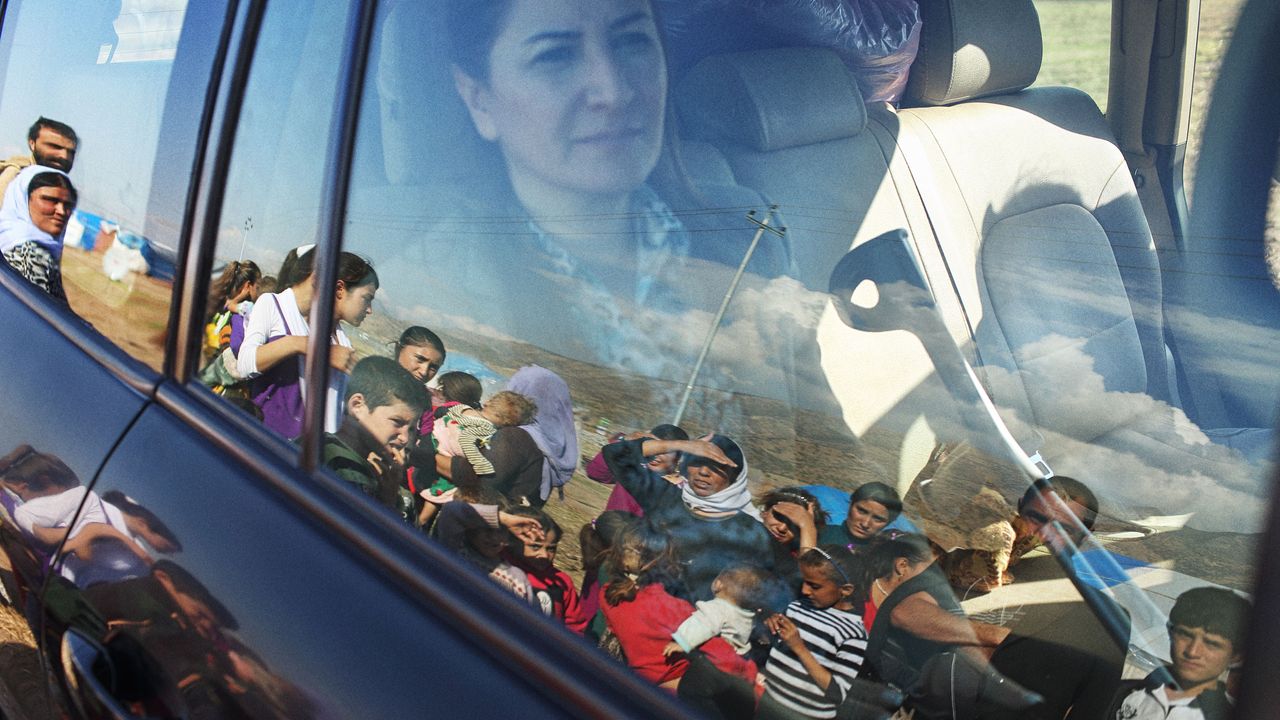
The black Land Cruiser carrying Vian Dakhil speeds along a highway in northern Iraq. Inside, the youthful politician presses her cell phone against her ear. "Speak a little louder if you can," she pleads, struggling to hear the caller's voice above the riotous traffic. "Where are you, exactly? How many other girls are with you?"
Dakhil, 43, is one of only two politicians in Iraq's parliament from the country's Yazidi population, a religious minority that extremist organization Islamic State (IS, often called ISIS or ISIL in the press) is trying to exterminate. When she hangs up, she explains that her caller was a Yazidi teenager who is currently being held captive by IS militants. "She was terrified and whispering because she was using a smuggled cell phone," explains Dakhil. "She told me that IS fighters had pushed her and about 50 other girls into pickup trucks and were transporting them to be sold as slaves or brides. She was crying, 'Vian, please rescue us, please rescue us.'"
Few people outside the region had heard of the estimated 700,000-strong Yazidi sect until IS attacked their ancestral territory around Mount Sinjar in the country's northwest last August, massacring thousands and taking thousands more prisoner. Dakhil raised the alarm, making impassioned speeches in Iraq's parliament and in Europe calling for global action to alleviate her people's plight. Her efforts have made her a hero to her fellow Yazidis. They have also catapulted her to the very top of IS's death list. "I have received warnings from government intelligence that I am now IS's most-wanted woman," Dakhil had told me earlier. "If they capture me, they will execute me at once."
IS, a ruthless militia of radical Sunni Muslims estimated by Iraqi officials to number around 200,000, made global headlines last summer with the videotaped beheadings of American journalists James Foley and Steven Sotloff. But its reign of destruction in Iraq and neighboring Syria began in earnest months before. Around 1.9 million Iraqis lost their homes as the jihadists captured territory including Iraq's second-largest city of Mosul, only 50 miles from Dakhil's family home in the capital of Iraqi Kurdistan, Erbil. The group has risen so fast that Ali Khedery, a former adviser to the U.S. Embassy in Baghdad, recently described it as "the al Qaeda that Osama bin Laden only dreamed of building."
The phone call Dakhil takes in the car is one of several distraught pleas for help she receives on this late October morning as she tours her besieged constituency. Since August, IS has kidnapped an estimated 5,000 to 7,000 Yazidi women, according to UN researchers. Treated as malak yamiin (spoils of war or slaves), the women have been subjected to multiple rapes, torture, and forced marriages. "IS has also set up slave markets to sell girls as young as 12, and they have taken some to Syria as 'rewards' for IS fighters there," says Dakhil. She has learned from phone calls with captives that at least 70 young Yazidi women have committed suicide, often by hanging themselves with their headscarves. "In this situation, I can't think about the threats against my own life," she says. "I have to keep doing everything I can to stop these barbaric crimes."
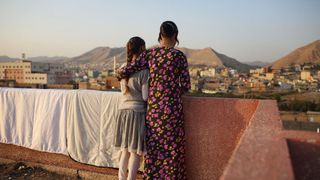
The slim, auburn-haired politician has circulated her private numbers so that any abducted women with hidden phones can reach her directly. When she speaks to them, she tries to determine their situation and location. Then she relays the details to the Iraqi-Kurdish regional government's armed forces, the Peshmerga, stationed at checkpoints outside IS-held towns and villages. She also alerts a small network of underground activists who are working inside IS territory to help the Yazidis escape. "It's very frustrating. Right now, we can't take direct action to rescue all the prisoners at once. We can only try to free them on a case-by-case basis," she says. To date, around 200 Yazidi girls and women have managed to escape their IS captors and reach safety, either on their own or with assistance from Dakhil and others.
The ethnic-Kurd Yazidis are not the only people IS is targeting. Others, including Christian and Shia communities, are also facing persecution. But the jihadists reserve a special animosity toward Yazidis because they regard their ancient religion, partly derived from Zoroastrianism, as "devil worship." To IS, they are kuffar (nonbelievers) who must undergo conversion to radical Islam or be killed. Educated, professional women of all faiths who defy the extremists' dogma that women have no place in public life are also singled out. News reports from the region document that IS has executed numerous female doctors, teachers, journalists, and lawyers in the past year.
Stay In The Know
Get exclusive access to fashion and beauty trends, hot-off-the-press celebrity news, and more.
Such danger threatens Dakhil's own family. Four of her five sisters are doctors, and the other is a pharmacist. (Her father is also a doctor, along with two of her brothers.) "I have a large family, and we are very close," says the politician, who grew up in her parents' spacious house in an affluent part of Erbil. Resisting the family tradition of going into medicine, she lectured in Arabic studies at Salahaddin University after graduating with a degree in that subject, and then became an adviser to various political parties on Yazidi issues. "I was always passionate about the rights of minorities like ours," she says. "It seemed a natural step to try for parliament." Of the 328 members of Iraq's parliament, Dakhil is one of two Yazidi representatives; the other is a man. She was first elected to office in 2010, and was reelected for another four-year term last April.
The job leaves little time for a personal life. Dakhil, who is unmarried, still lives with her parents and various siblings in Erbil when she is not attending parliament in Baghdad. As we drive along, she tries to recall the last time she had a whole day off, free from meetings and endless calls on her two cell phones. "No, I can't remember," she says, adding that she is "married to my work." Most Iraqis marry by their early 20s, but, partly owing to the Yazidis' rigid caste-based system, only four of Dakhil's eight siblings have found spouses so far. "We are not allowed to marry outside the religion, and we must choose someone from our own caste," says Dakhil. It can be difficult to find a match, especially for high-achieving women in the mostly agricultural community. "For me, it's impossible to find someone at the same level," she says with a smile that's hard to read.
Her dedication has almost cost her her life once already in recent months. Last August, when IS forces stormed Yazidi villages around the 60-mile-long foothills of Mount Sinjar, thousands of Yazidis fled up the barren slopes and became stranded. Dakhil took part in a perilous helicopter mission to rescue some of them. "There was a riot as people tried to climb aboard," she recalls. "Our helicopter was overloaded and crashed into a rock." The pilot was killed. Dakhil broke her leg and some ribs. When a second helicopter arrived to airlift her to the hospital, IS fighters tried to shoot it down as it departed.
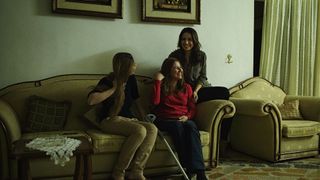
The stories of Yazidis captured by IS make it clear why Dakhil is so committed to helping them. In the town of Ba'adra, 90 minutes outside Erbil, I visit a young mother who escaped the extremists only six days earlier.
Nofa Esmain, 19, fled on foot for four days and three nights through IS-held territory with her 1-year-old son, Toran, and seven other women. "We believed we would die if we didn't try to escape," she says, sitting on the floor of a crowded home where she has been reunited with her uncle. During her hazardous journey, she had no food, only a little milk for Toran, and almost no sleep.
Esmain was abducted by IS in August, along with all the other women under the age of 40 in her village of Kocho, south of Mount Sinjar. Her father and her 25-year-old husband, Rezlan, were among as many as 400 village men and boys lined up and shot by IS soldiers when they attacked. "Then they separated the women into young and old," she says. "I don't know what happened to my mother." (UN sources also report young boys ages 7 to 11 being taken away to be indoctrinated and trained as IS fighters.)
Together with about 360 women from Kocho, Esmain was taken to the IS-held town of Tal Afar. "I was put in a house with 20 other women and children. Every house around us was full of captured Yazidi women," she says. They were given only rotten food to eat. IS fighters visited every day and chose women to rape or sell. Esmain says she tried to avoid being selected by "being very quiet," but it didn't work. "They did everything to us, and if we fought back, they beat us with electric cables or threw gasoline into our eyes." (The taboo in Yazidi culture means she will not say the word rape outright.)
Last October, IS published an article confirming its sexual exploitation of Yazidi women in its propaganda magazine, Dabiq. "One should remember that enslaving the families of the kuffar [nonbelievers] and taking their women as concubines is a firmly established aspect of the Sharia [Islamic law]," the article said. It then boasted about dividing Yazidi women and children among IS fighters to sell as war booty. A YouTube video purporting to show IS soldiers discussing sex slaves has also surfaced. "Today is female sex slave market day," says one fighter in the clip. "With Allah's permission, each will get a share." Later, the same man says he will "check the girl's teeth" before he buys. "What would I want her for if she has no teeth?"
The women in Esmain's house had managed to smuggle in two cell phones, their only lifelines. "We hid them inside baby formula or buried them outside, and asked relatives to top up the credit," she says. Esmain made the decision to risk her life by fleeing after IS soldiers discovered the hidden cell phones of two women from another house. "They tied the women to the back of a pickup truck and dragged them through the streets until they were covered in blood." (Somehow, both women survived, she adds.) Although she is now free, the teenager believes she has no future: "My only purpose is to take care of my son. I have nothing else."
Today is the first day since the helicopter crash that Vian Dakhil has ventured out on a long trip to visit some of the 450,000 Yazidis displaced from the Mount Sinjar region. They are now crammed into schools, abandoned buildings, and refugee camps inside Peshmerga-controlled areas of Iraqi Kurdistan. Her leg still has not healed fully, and she needs crutches to walk. "I am nervous about their reaction," she admits on the journey. "They have lost everything. What if they are angry that politicians like me are not doing enough for them?"
The first stop is a dilapidated shell of a building near the Kurdish city of Duhok, two hours north of Erbil, where 14 families have taken refuge. Outside, drying laundry is draped over piles of dead twigs; inside, women in white headscarves are preparing a lunch of eggs and rice on a dirt floor. When Dakhil's car pulls up, accompanied by two other vehicles carrying her five burly security men, the inhabitants at first stare in shock. They did not know she was coming—as a safeguard, Dakhil never reveals her schedule, not even to her own family—and they can't believe it's her.
Then they all surge forward, rushing to kiss her cheeks while her staff hands out care packages of clothes and toiletries. She translates for me in rapid-fire English as the refugees pour out their stories of unimaginable loss: "This woman with a 4-month-old baby watched IS fighters shoot her husband and elderly parents. This mother's two daughters, ages 13 and 15, were sold as sex slaves. This man's entire family has been killed." She asks him how many relatives died. "Twenty-two," he replies, bursting into tears.
Despite their grief, some refugees seem just as concerned about Dakhil. They ask her about her broken leg and whether she's eating properly. (She's not, at least not today: The only food she eats in 14 hours is half of a melted Mars bar.) Shortly before her accident, Dakhil collapsed in Iraq's parliament after delivering an emotional speech beseeching the government to act to prevent genocide against the Yazidis. Her passion played a role in prompting Iraqi and U.S. forces to launch airdrops of humanitarian supplies, as well as to begin air strikes against IS positions. "We care about Vian because she cares about us," an elderly man tells me.
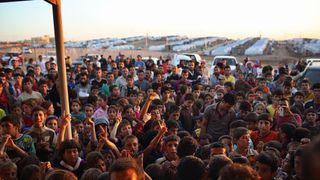
U.S.-led coalition air strikes have helped keep IS from further military gains in the region so far. But the situation for the Yazidis remains precarious, says Dakhil. Even if IS is defeated, the crisis has shattered decades of fragile peaceful coexistence among the competing religious and ethnic interests in Iraq's north. There are fears that the Yazidis will never get their homes back. "As a minority, we have to fight very hard to survive," says Dakhil, who will soon visit France and Germany to seek additional international support.
Helping the young women who have escaped IS is another matter of urgency. At Dakhil's home in Erbil the previous evening, Dakhil's sister Jwan Dakhil talked about the deep stigma attached to sexual assault in Yazidi culture. Jwan, 27, is a gynecologist at the region's largest maternity hospital. "In theory, there is no problem in our community accepting women who've been raped," she says. "They are not shamed, they are helped." But there is a fear, she adds, that not everyone has the ability to be understanding or tolerant in practice. "We have a strict custom that women must be virgins when they marry. This could make it very difficult for some of the younger girls who have been repeatedly violated by IS."
The Yazidi High Religious Council, the sect's highest ruling body, issued a statement last November forbidding anyone to reject women who had been abducted. "They must be welcomed back with open arms because of their sacrifice," the statement said. Still, a more pressing issue for abducted Yazidi women who manage to return, Jwan says, is recovering from the trauma of rape and torture. "The last thing many girls and women will care about is finding husbands," she says. "They need proper medical assistance and prolonged psychological care."
In an effort to address this, Yazidi leaders and the Kurdistan Regional Government recently set up a joint task force and safe house in Duhok dedicated to the welfare of women who have escaped IS. "Although some boys and men have been abducted, too, we set it up for women only because they are being systematically enslaved. Their needs are different," says Khidher Domle, an expert on Iraq's minorities and a key member of the task force.
The location of the safe house—actually a large, modern apartment in the city—is kept secret so the women can recover in private. "As soon as a woman gets away from IS, we bring her here," says Domle, who gives me a rare invitation to go inside. "We get her treated by female doctors and provide trauma counseling." He says encouraging women to talk is an "extremely difficult and delicate matter." Their powerful first instinct is to deny they were raped. "Many say they resisted the IS fighters, but we know from the medical examinations of over 150 escaped women that they have all been subjected to horrifying sexual abuse." A number of unmarried girls have returned pregnant, he adds. The task force arranges abortions for those who request them.
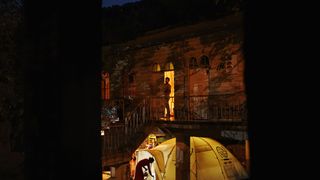
The safe house is just the first stage in a long process of healing for escapees, but it's a vital one. The women are facing intense grief as well as physical trauma. Aisha, a 14-year-old who fled her IS captor only four days before I meet her, says she can't face living in a refugee camp just yet. "My parents and four sisters and one brother are all still missing," she says. "It would be difficult for me to be around other families in the camp."
Aisha, who has always dreamed of being a math teacher, was one of an estimated 350 teenage girls who were taken over the border into Syria to be presented as "gifts" to fighters there. When the Syrians moved on to a new battle, she was brought back to Mosul and sold to an IS commander. "He bought seven girls at the market, including me, and kept us all in his house for himself," she says. She escaped with four other girls when the man forgot to padlock them inside. "We ran away on the spot."
Domle says the task force is working with the Kurdish authorities on strategies to try to save all the Yazidi women. Although he can't discuss specifics, he believes it could become easier to implement rescue plans as IS fighters lower their guard around the women, get called into battle, or simply get bored with their spoils. "Whatever happens, it is not enough to rely on chance that women will successfully escape," he says. "We need to do much more."
Vian Dakhil agrees. The last visit of her day is Khanke IDP camp outside Duhok. The sprawling refugee camp is now home to 11,000 Yazidi families—65,000 people—and the numbers are growing daily.
"Every one of these families has close relatives who are missing, mostly young women and children," she says. "It is impossible to rest when so many are still out there." As hard as she works, however, Dakhil insists she's not a one-woman savior: "My job is to tell the world about our plight and persuade people who are far more powerful than me to take effective action."
She's right, but she also underestimates herself. What makes her so popular with her fellow Yazidis—and so dangerous in the eyes of the Islamic State—is that she is their greatest symbol of hope. Hope is the very thing the jihadists have tried to extinguish with their genocidal campaign against the minority.
Dakhil's reception at Khanke camp as the sun sets is the most overwhelming of the day. Hundreds of refugees mob her car and start up a deafening chant of "Vian! Vian! Vian!" It's a moving sound as it rises above the bleak sea of plastic tents. It's even more moving when you know what her first name means in Kurdish: love.
This article appears in the February 2015 issue of Marie Claire.
-
 Do Your Stressed Winter Skin a Favor and Invest In Barrier Repair
Do Your Stressed Winter Skin a Favor and Invest In Barrier Repair14 expert-approved products for soothed, glowy skin, ahead.
By Ariel Baker Published
-
 20 On-Sale Beauty Finds to Conquer the Winter Season
20 On-Sale Beauty Finds to Conquer the Winter SeasonIt's time to add some hydration to your routine.
By Brooke Knappenberger Published
-
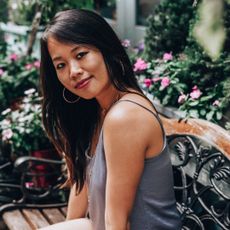 Netflix Is Adapting One of #BookTok's Favorite Romances—Here's What We Know About Ana Huang's 'Twisted Love' TV Series
Netflix Is Adapting One of #BookTok's Favorite Romances—Here's What We Know About Ana Huang's 'Twisted Love' TV SeriesCould this be the next 'Bridgerton' or 'Tell Me Lies?'
By Quinci LeGardye Published
-
 36 Ways Women Still Aren't Equal to Men
36 Ways Women Still Aren't Equal to MenIt's just one of the many ways women still aren't equal to men.
By Brooke Knappenberger Last updated
-
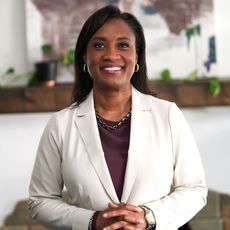 EMILY's List President Laphonza Butler Has Big Plans for the Organization
EMILY's List President Laphonza Butler Has Big Plans for the OrganizationUnder Butler's leadership, the largest resource for women in politics aims to expand Black political power and become more accessible for candidates across the nation.
By Rachel Epstein Published
-
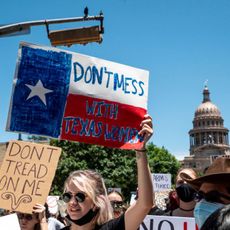 Want to Fight for Abortion Rights in Texas? Raise Your Voice to State Legislators
Want to Fight for Abortion Rights in Texas? Raise Your Voice to State LegislatorsEmily Cain, executive director of EMILY's List and and former Minority Leader in Maine, says that to stop the assault on reproductive rights, we need to start demanding more from our state legislatures.
By Emily Cain Published
-
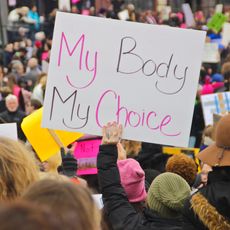 Your Abortion Questions, Answered
Your Abortion Questions, AnsweredHere, MC debunks common abortion myths you may be increasingly hearing since Texas' near-total abortion ban went into effect.
By Rachel Epstein Published
-
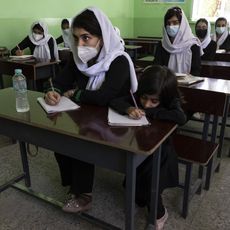 The Future of Afghan Women and Girls Depends on What We Do Next
The Future of Afghan Women and Girls Depends on What We Do NextBetween the U.S. occupation and the Taliban, supporting resettlement for Afghan women and vulnerable individuals is long overdue.
By Rona Akbari Published
-
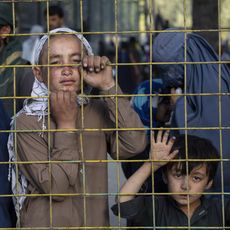 How to Help Afghanistan Refugees and Those Who Need Aid
How to Help Afghanistan Refugees and Those Who Need AidWith the situation rapidly evolving, organizations are desperate for help.
By Katherine J. Igoe Published
-
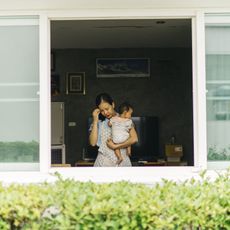 It’s Time to Give Domestic Workers the Protections They Deserve
It’s Time to Give Domestic Workers the Protections They DeserveThe National Domestic Workers Bill of Rights, reintroduced today, would establish a new set of standards for the people who work in our homes and take a vital step towards racial and gender equity.
By Ai-jen Poo Published
-
 The Biden Administration Announced It Will Remove the Hyde Amendment
The Biden Administration Announced It Will Remove the Hyde AmendmentThe pledge was just one of many gender equity commitments made by the administration, including the creation of the first U.S. National Action Plan on Gender-Based Violence.
By Megan DiTrolio Published